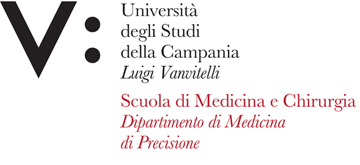Andrea MILLEFIORINI
Insegnamento di SOCIOLOGIA GENERALE
Corso di laurea in SCIENZE E TECNICHE PSICOLOGICHE
SSD: SPS/11
CFU: 6,00
ORE PER UNITÀ DIDATTICA: 42,00
Periodo di Erogazione: Secondo Semestre
Italiano
| Lingua di insegnamento | ITALIANO |
| Contenuti | Concetti e problemi della sociologia generale. |
| Testi di riferimento | Frequentanti: |
| Obiettivi formativi | Obiettivo dell'insegnamento è quello di fornire allo studente le categorie sociologiche attraverso le quali poter leggere e interpretare le principali dinamiche sussistenti tra soggetto agente e contensto sociale circostante. |
| Prerequisiti | Nessun prerequisito richiesto |
| Metodologie didattiche | Il corso di sociologia generale avverrà per una parte prevalente attraverso lezioni frontali in aula, mentre per la parte relativa alle attività pratiche verranno assegnate agli studenti delle ricerche, da effettuarsi o direttamente sul campo (in gruppi di massimo 4 studenti) o attraverso l’analisi e la rielaborazione di dati di rilevanza sociologica (in gruppi di massimo 4 studenti), oppure, infine, con il commento a testi di classici del pensiero sociologico (individualmente). La scelta tra uno dei suddetti metodi sarà a piena discrezione dello studente. |
| Metodi di valutazione | Esame orale. |
| Programma del corso | PARTE ISTITUZIONALE: |
English
| Teaching language | Italian |
| Contents | Concepts and problems of general sociology. |
| Textbook and course materials | A. Millefiorini |
| Course objectives | The aim of the course is to provide students with the sociological categories through which they can read and interpret the main dynamics that exist between the agent and the surrounding social environment. |
| Prerequisites | No prerequisites required |
| Teaching methods | The main part of the general sociology course will take place through lectures in the classroom, while for the part relating to practical activities, students will be assigned research work, to be carried out either directly in the field (in groups of a maximum of 4 students) or through the analysis and re-elaboration of sociologically relevant data (in groups of a maximum of 4 students), or, finally, through commentary on texts by classics of sociological thought (individually). The choice between any of the above methods will be at the full discretion of the student. |
| Evaluation methods | Oral examination. |
| Course Syllabus | INSTITUTIONAL PART: |








